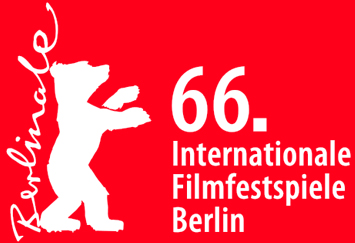(From Maverickeye)
Brush up on Berlin International Film Festival’s programme that is divided into 9 sections. This article contains brief descriptions of each section comprising the programme for Berlinale 2016:

- Competition – This section is the heart of the festival and it brings glamour to Berlin with international stars, renowned directors and brilliant talents strolling across the red carpet. They will all be in town to present their latest films and encounter fans. Competition has been setting trends for new cinema for over 60 years.
- Berlinale Shorts – This section includes short films which may have smaller budgets but never lack controversy that will test the viewer’s comprehension. Short films bring out the individual style of the artist whether it’s a sketched thought, open-ended question or drama that’s carefully staged.
- Panorama – This section comprises all films which celebrate their European and world premiere. Panorama bridges commercial interests as well as artistic vision and includes film buyers in its target audience. It involves controversial themes such as LGBT issues and presents its films in 3 series with different profiles such as Panorama main programme, Panorama Dokumente and Panorama Special.
- Forum – This section of the festival also known as International Forum of New Cinema is the most daring with avant-garde, experimental works, essays, undiscovered cinematic landscapes and political reportage. Selection of films has a few formal limitations and feature films as well as documentaries are given equal consideration.
- Generation – This section presents discoveries from the world cinema and young people. It is devoted to children and the youth since 1978 and integrates them into the film-aesthetic discourse of the festival. Selected films are accessible to viewers under 18 years old.
- Perspektive Deutsches Kino – This section showcases the trends and perspective of German cinema’s future. It offers an opportunity for young filmmakers to present their work. Practically, there are no limitations for potential films to put film academy students into consideration.
- Berlinale Special – This section honours remarkable cinema personalities and all those films about current events that caught people’s attention. Dieter Kosslick, the Festival Director selects the films that will be part of Berlinale Special. It includes films by or about exceptional people which the festival connects with as well as productions that are new and extraordinary.
- Retrospective – This section brings international and German films back to the big screen and is always dedicated to a film history theme or an important director. The films come with a restored version or a new copy, and in 2013, it expanded by including presentations of Berlinale Classics.
- Homage – This section honours amazing actors, directors and other internationally-renowned exceptional film personalities. Berlinale dedicates this year’s Homage to German cinematographer Michael Ballhaus and he will be awarded with an Honorary Golden Bear for lifetime achievement.
Special Presentations
- Culinary Cinema – Functions with the motto “Make Food Not War”, this programme showcases 11 topical films in feature-length showing the relationship between food, politics and culture.
- Berlinale Goes Kiez – The term Kiez is a German word which refers to a city neighbourhood and Berlinale has travelled from one arthouse cinema to another on 7 evenings of the festival since 2010. Then one arthouse cinema turns into an additional venue for the fest and two selected films from the Berlinale programme will be presented there.
- Native – A Journey into Indigenous Cinema – This special series has been devoted to the cinematic storytelling of indigenous people all over the world. The festival aims to show its appreciation of indigenous cinema by demonstrating its relevance away from cultural, political and regional boundaries. This special presentation draws attention to film productions that have this type of content.
For more details about Berlinale, visit their official website or follow the hashtag #BerlinaleMoments.

